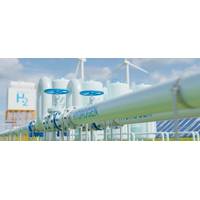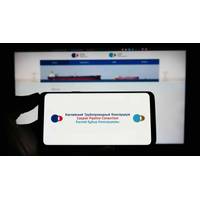BP back in the black
BP has made a profit of $115 million for the year 2016. This compares to its loss of $6.5 billion in the previous year. The company in its report stated having focused on growth: strategic portfolio additions, new projects coming onstream, costs and spending reduced ahead of schedule.
Bob Dudley, BP group chief executive, commented, "2016 was the year we made significant strides in creating a stronger platform for growth. We launched six major project start-ups - from Algeria to the Gulf of Mexico - and made final investment decisions on a further five major projects. And we see exciting opportunities ahead.
"We have delivered solid results in tough conditions - and are well prepared for any volatility in oil pricing. We have adapted by cutting our controllable cash costs by $7 billion from 2014 - a full year earlier than planned. Continued tight discipline on costs remains essential. Everything we have done during the year has made us a more resilient and competitive company.
"With our Deepwater Horizon financial liabilities now substantially behind us, BP is fully focused on the future. You have seen that focus in the string of strategic portfolio additions during the last two months of the year. From increasing gas interests and renewing long-term low-cost oil to expanding our retail operations - these investments will generate significant long term value for our shareholders. We start this year with considerable momentum - and a sense of disciplined ambition. We have laid the foundations for BP to be back to growth."
4Q and full year 2016 results
Underlying replacement cost profit1 for fourth quarter of 2016 was $400 million2, compared with $196 million for the same period in 2015 and $933 million for the third quarter of 2016. Compared to a year earlier, the quarter’s result benefited from higher oil prices and significantly lower costs, offset by weaker refining margins and higher turnarounds in the Downstream.
The full year 2016 price environment was challenging: the average Brent oil price of $44 per barrel was the lowest for 12 years; Henry Hub gas marker prices averaged $2.46 per million British thermal units; and the refining marker margin was the lowest since 2010.
The headline reported result for the full year was a profit of $115 million, compared with the headline loss of $6.5 billion reported for 2015. The 2016 headline result included a total of $4 billion non-operating charges taken through the year associated with resolution of the remaining legacy of the 2010 oil spill. The headline profit excluding these legacy charges was $4.1 billion for 2016, compared with $2.0 billion for 20153.
Underlying operating cash flow4, excluding pre-tax Gulf of Mexico payments, was $17.8 billion for 2016, with $4.5 billion in the fourth quarter, compared with $20.3 billion in 2015.
BP’s full year controllable cash costs5 were $7 billion lower than in 2014 - a target reached a year earlier than previously expected. Organic capital expenditure for the year totalled $16 billion6 in 2016, compared with the range of $17-19 billion anticipated at the beginning of last year.
In total $7.1 billion in pre-tax payments related to the Gulf of Mexico oil spill were made through 2016, as processing of outstanding claims accelerated. Total divestment revenues were $3.2 billion in the year7.
BP reported a reserves replacement ratio for 2016 of 109%8.
At year end, BP’s gearing level was 26.8%, within the target range of 20-30%.
BP also today announced an unchanged dividend for the quarter of 10c per ordinary share, expected to be paid in March 2017.
Strategic progress
During the fourth quarter BP announced a series of important agreements, including
* increasing long-term low-cost oil interests through renewal of BP’s 10% interest in the ADCO onshore oil concession in Abu Dhabi, which has a life of 40 years;
* taking a material stake in emerging world-class, low-cost gas basins offshore Mauritania and Senegal through a farm-in agreement with Kosmos Energy;
* extending BP’s existing major gas positions: in Egypt, by acquiring a 10% interest in the world-class Zohr gas field in the Mediterranean; in Oman, finalising agreements to extend the Khazzan gas project by 50%; and in Indonesia by acquiring an additional 3% in the Tangguh LNG project;
* building from significant incumbent oil positions: in Azerbaijan, BP and partners agreeing principles to extend the ACG oil concession by 25 years to 2050; and in the US Gulf of Mexico, BP sanctioning the development of the Mad Dog 2 project, at costs 60% lower than originally estimated, expected to begin production in 2021; and
* building on BP’s leading retail and convenience expertise, agreeing a strategic fuel and convenience partnership in Australia with the leading supermarket chain Woolworths, including the acquisition of their network of more than 500 retail sites9.
Bob Dudley commented: "These agreements are firmly aligned with BP’s strategy and our view of the evolving energy landscape. They will make an important contribution to BP’s growth and create significant long term value for our shareholders.”
Two new major Upstream projects began production during the fourth quarter: the In Amenas compression project in Algeria, and the Thunder Horse South Expansion project in the US Gulf of Mexico, which came onstream 11 months earlier than planned and $150 million under budget. BP also won interests in exploration acreage in the Mexican Gulf of Mexico.
2017 guidance
The recently-announced portfolio additions will be accretive to cash flow over the longer term but will require additional cash outflow in the early years. Together with the mostly second half start-up of the new Upstream projects expected to come onstream in 2017, these significant and strategic additions mean that BP now anticipates balancing its organic sources and uses of cash by the end of 2017 in a Brent oil price environment of around $60 a barrel.
"Looking beyond this year, we expect organic free cash flow to grow into the medium term, supported strongly by the ramp-up of production from new Upstream projects, strong marketing growth and the positive impact of these portfolio additions," said Brian Gilvary, BP chief financial officer.
Including estimated additional organic capital spending associated with the portfolio additions, organic capital expenditure is now expected to be $16-17 billion in 2017.
Divestment proceeds for 2017 are expected to be $4.5-5.5 billion, reverting to $2-3 billion a year thereafter.






